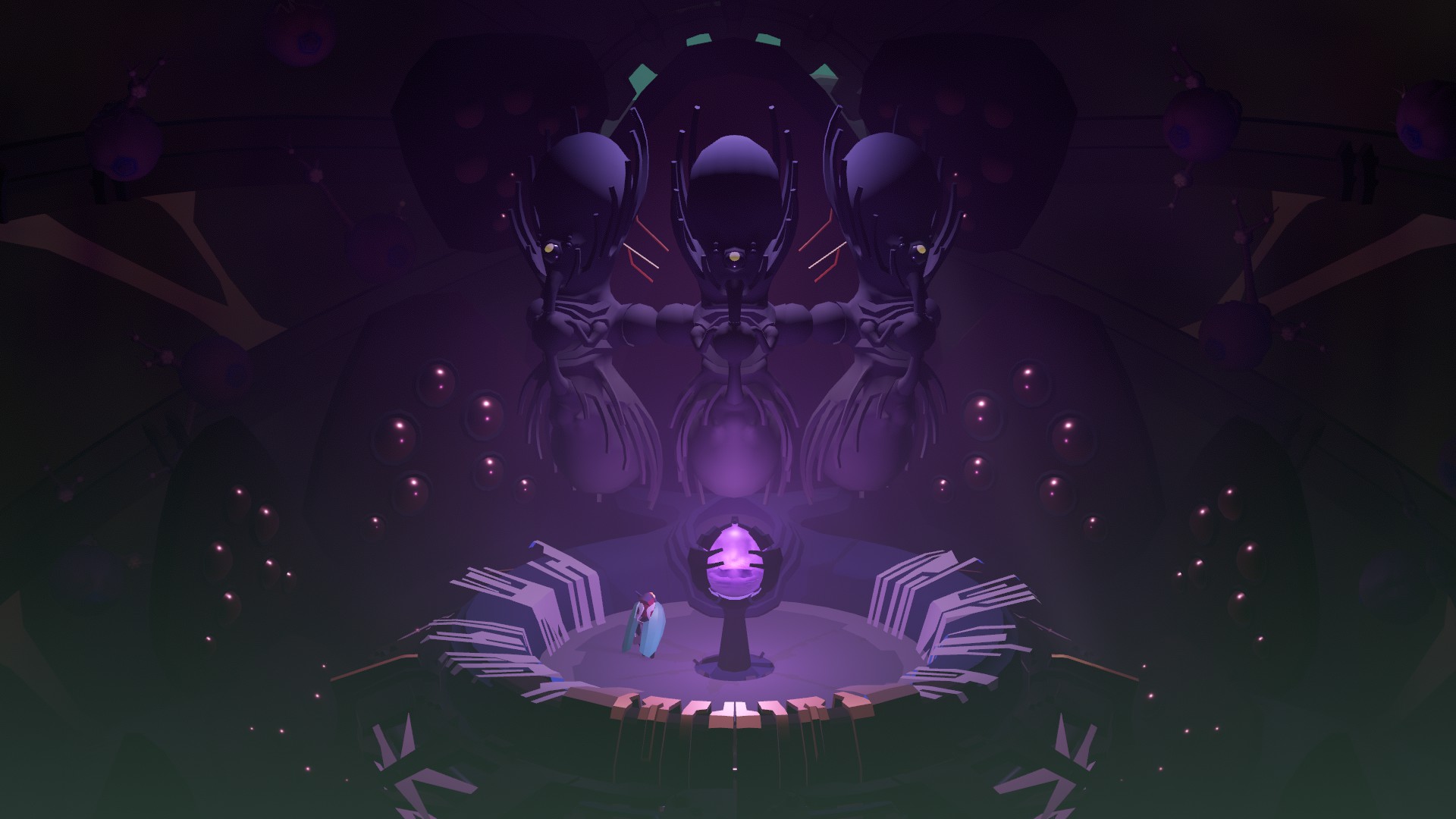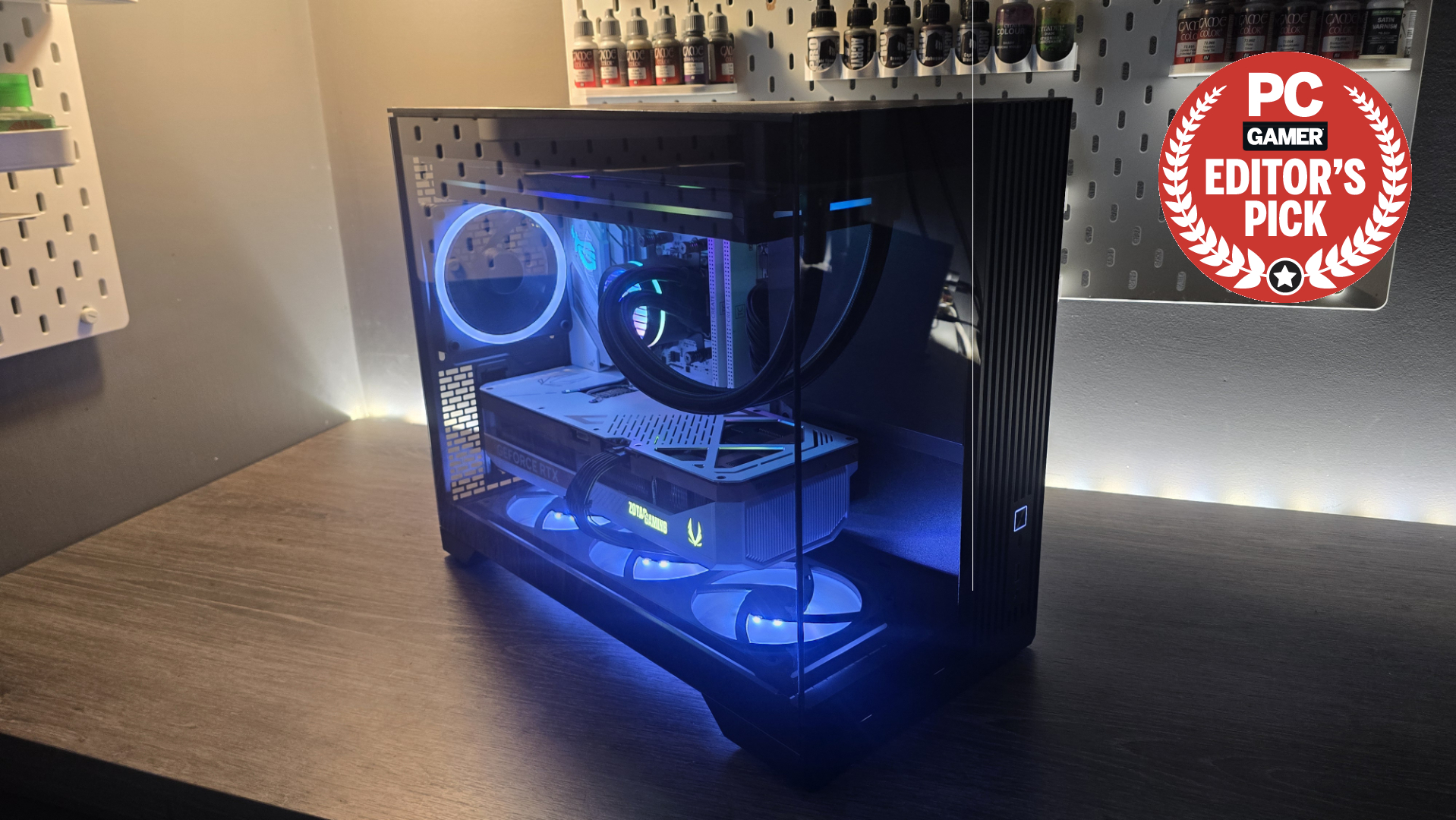Our Verdict
A puzzle adventure of rare ingenuity that thrives on its tactility as much as its design.
PC Gamer's got your back
After a short stint wandering the orange canyons of Cocoon's opening area, you come across a curved groove in the ground, like a smile with indented lips. At one edge sits a large metallic ball, which you grab and yank until it reluctantly leaves its rectangular base, yet remains connected by a chewing gum string. Once the gum's elasticity approaches its limit, the base starts to move too, gliding across the mouth as if you're opening a zipper.
What is it? A puzzle adventure game directed by Jeppe Carlsen, former lead designer at Playdead.
Expect to pay: £19.99
Release date: September 29, 2023
Developer: Geometric Interactive
Publisher: Annapurna Interactive
Reviewed on: RTX 2070, i7-10750H, 16GB RAM
Multiplayer? No
As a puzzle adventure, the joy of Cocoon is in figuring out how to overcome obstacles and progress, but it's also in the execution. Taking hold of the ball in this instance is an obvious action given that the beetle-winged humanoid you guide around can only manipulate the world via a single action button, and there's nothing else to work with in the immediate vicinity. You drag the zipper along the groove and that activates a platform. Job done. But it's a far more pleasing exercise than merely pulling a lever.
The tinfoil tint of the ball, the pliability of the gum, the pink flesh that ripples as the zipper makes its journey. It's all so very tactile.
Cocoon makes incredible meals of puzzles within vibrant worlds that could have adorned prog rock album covers, backed by moody synths that also could have blessed the vinyl inside. When you're pressing switches and activating bridges here, you're not simply pressing switches and activating bridges. Even the platform that responds to the zipper is actually an enormous flat robot bug that rears up and embeds its front claws in the canyon wall. In these and many other moments, Cocoon is properly, delightfully surreal—it assembles everyday concepts in unusual combinations, wrapped in plastics, metals and organic matter that feel both familiar and alien. It raises questions that no one will answer.
Small world
Once you get further into the game the puzzles become more substantial. Mainly that's down to Cocoon's star feature, which you first experience when you reach a kind of round rubber platform in the sand, press your action button to trigger it and watch as your beetle person flies up and out of the world itself. Now you're in a grey industrial environment, and the world you were in a moment ago exists here only as a large orange marble. Interact with it and you hoik it onto your back to cart around like an ant with a seed.
This orb-world functions as a kind of power cell in your new surroundings. You deposit it on small plinths to make bony bridges appear or summon smooth plasticky platforms. Certain plinths enable you to return to the original orange planet, right where you left it. With some warping back and forth you might find ways to shift an obstacle in one world with a mechanism in the other.
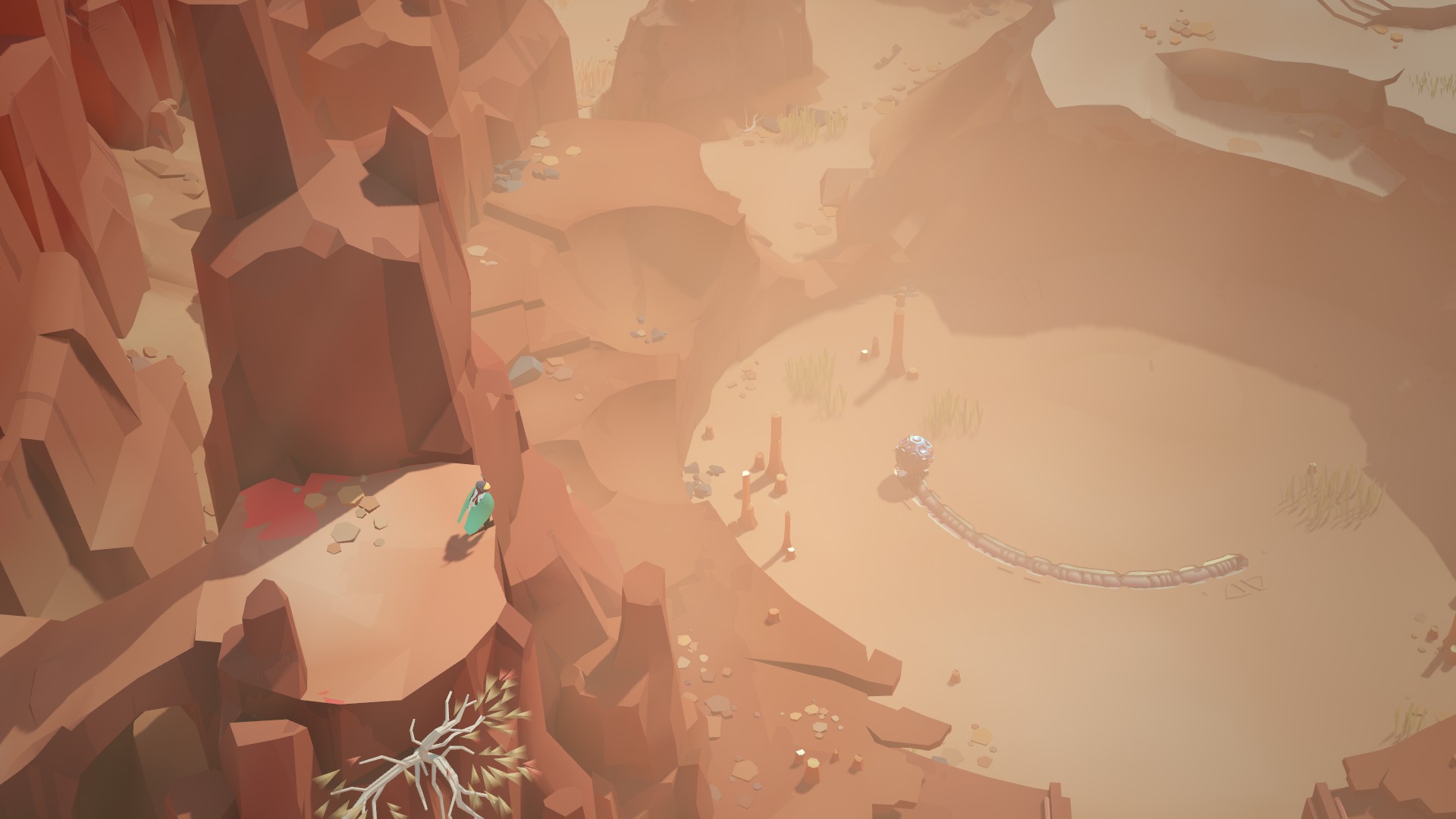
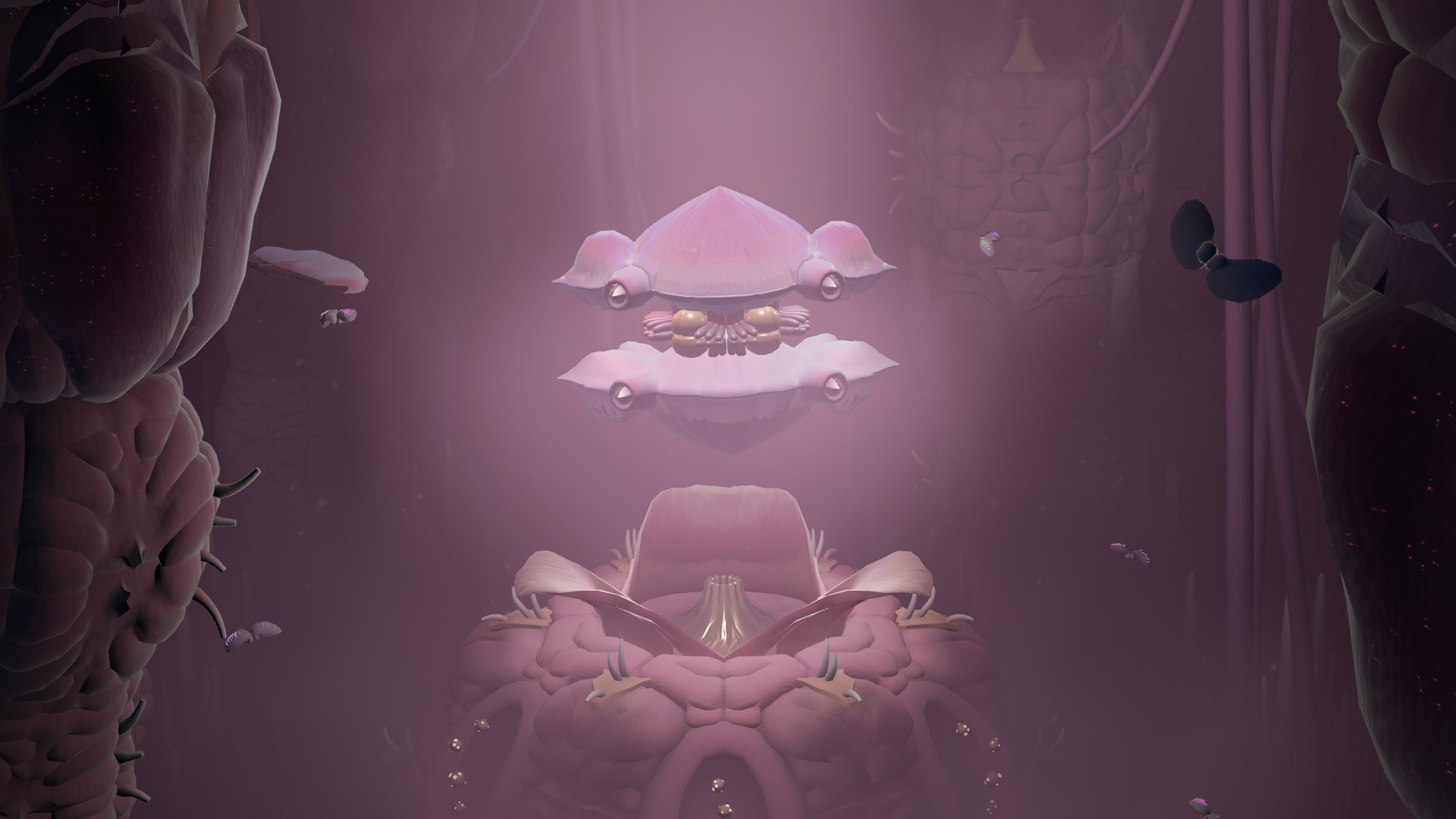
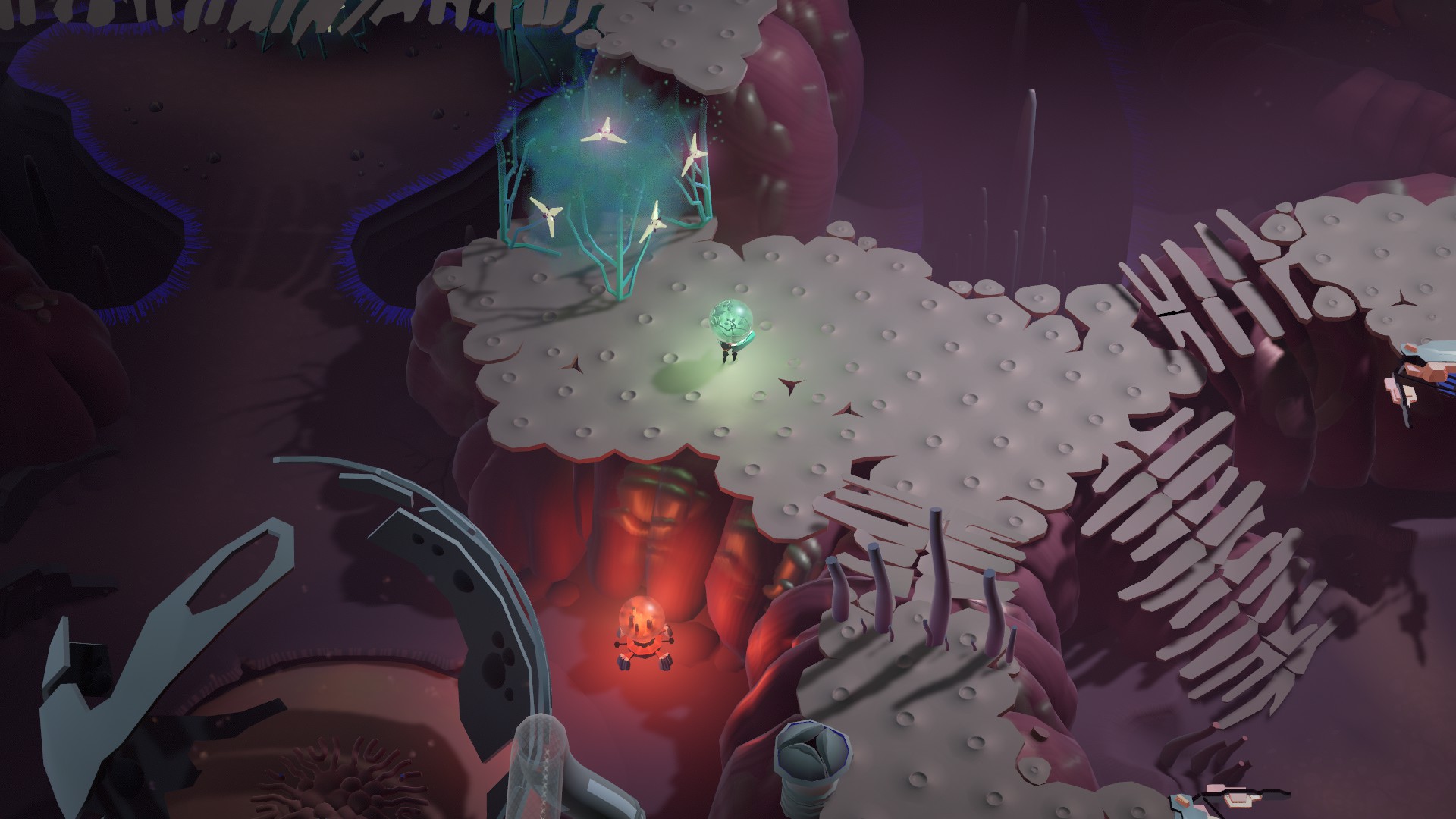
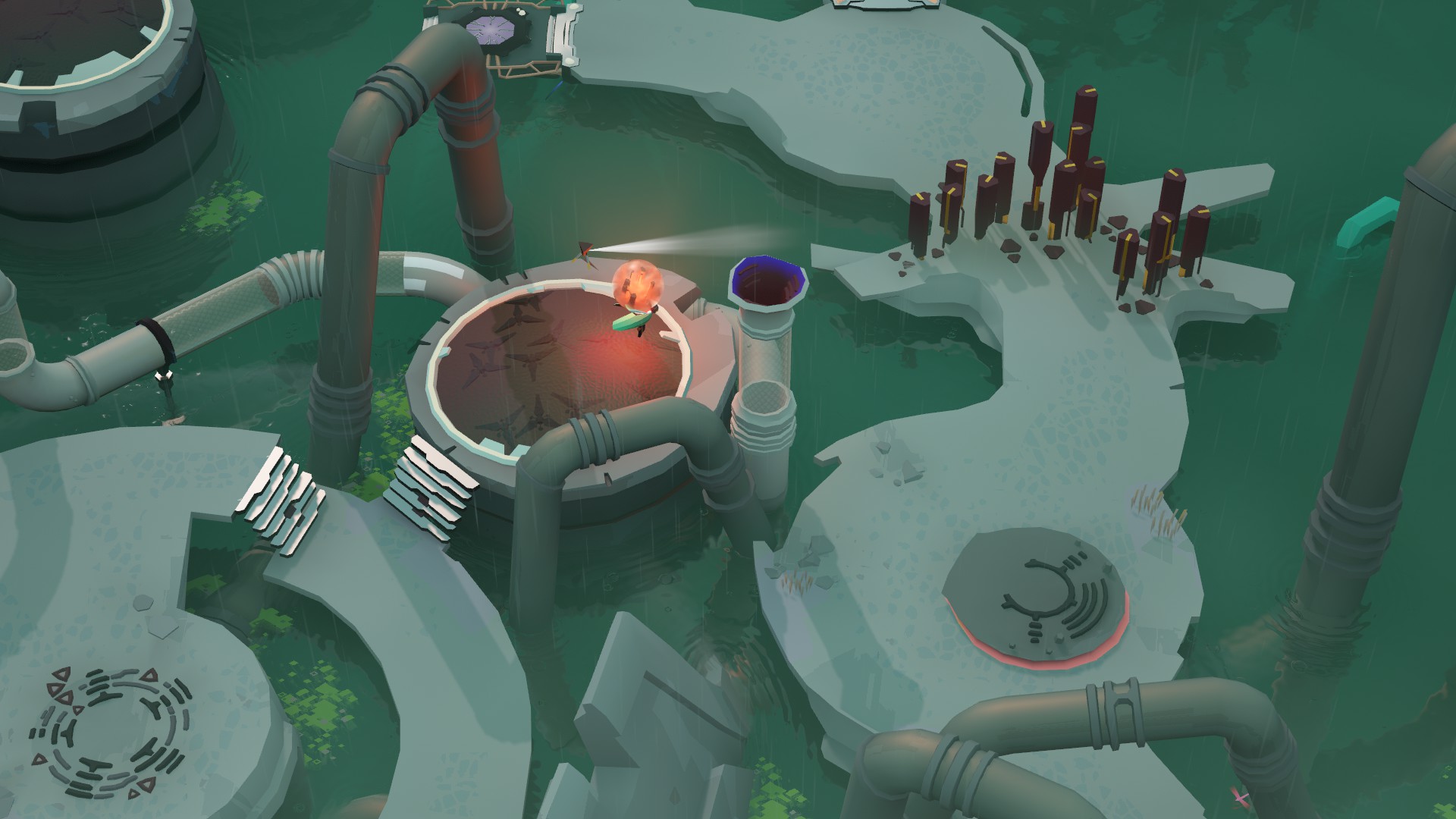
And still this is only the beginning. Once you acquire two orbs, three, four, each also a world of its own, the possibilities stack exponentially.
Keep up to date with the most important stories and the best deals, as picked by the PC Gamer team.
In some sequences you remain inside a single world for a while, forging forward without worrying about its position in the greater scheme of things. Each fresh biome is a treat as it reveals what forms of machine dwell within and what forms of organism, and how the two function together in choreographed lockstep. Some other sequences focus on one of the orb's unique powers, like the way orange solidifies otherwise invisible walkways within its aura, creating new paths in the grey world, and later a swampy green world, but only when you're carrying it.
Ultimately frequent world hopping becomes a necessity and Cocoon pushes the concept to marvellous conclusions. What if you need to carry the orange orb, for example, but that takes you to a place where you need the green orb? Well, how about stashing green inside the orange world first, then retrieving it once you reach your destination? It can take a few minutes for each of the concept's ramifications to click into place, but Cocoon builds iteratively and won't let you wander far off track. Its puzzles are clever but not complicated, endlessly strange yet logical, until you find yourself working with physical paradoxes as if they were second nature.
At times it asks you to think a little wider, backtracking slightly to find what you need, and it can be difficult to remember where you were in a world if you haven't visited for a while. But it never overwhelms or allows you to get lost.
Circle of life
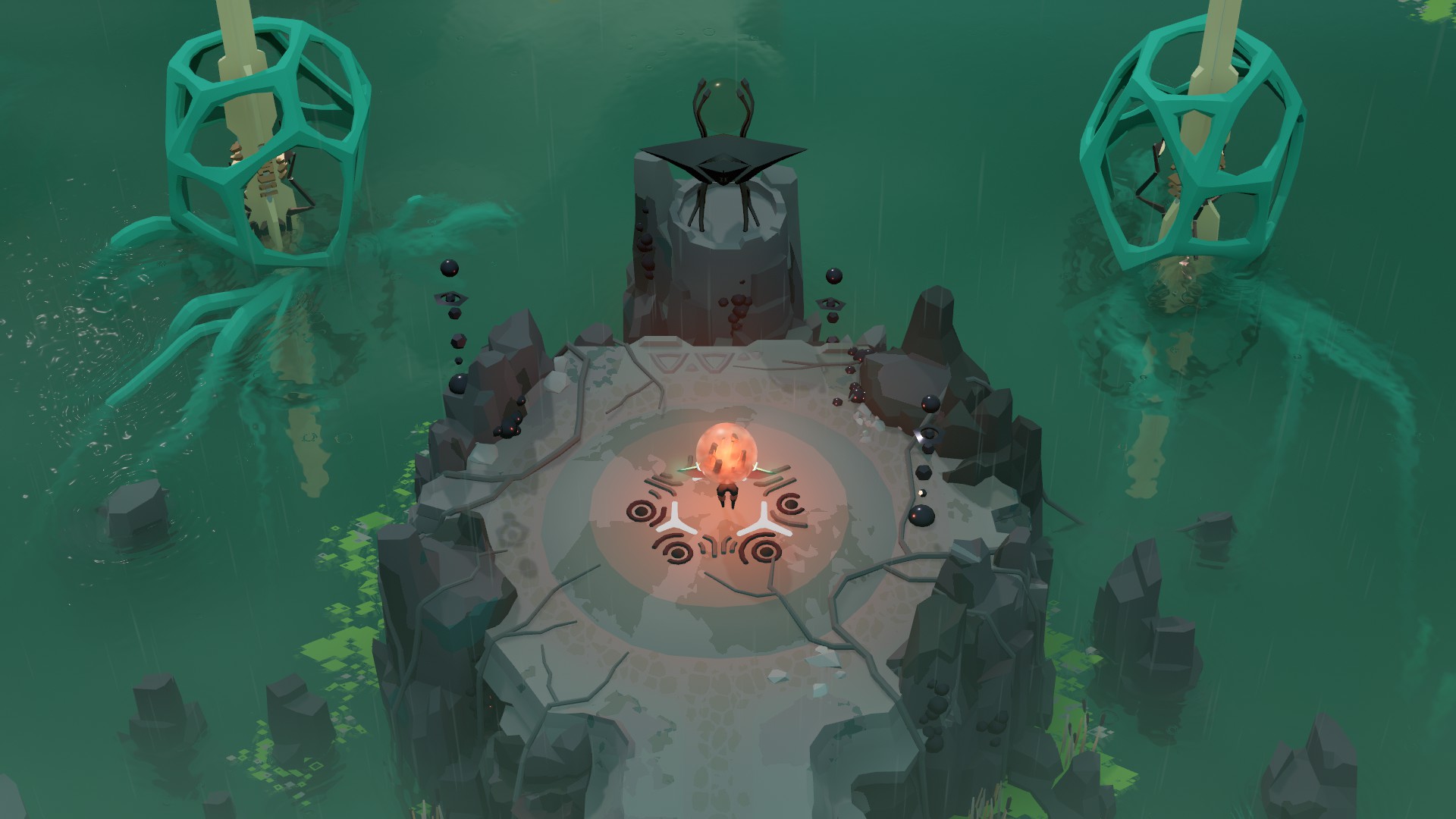
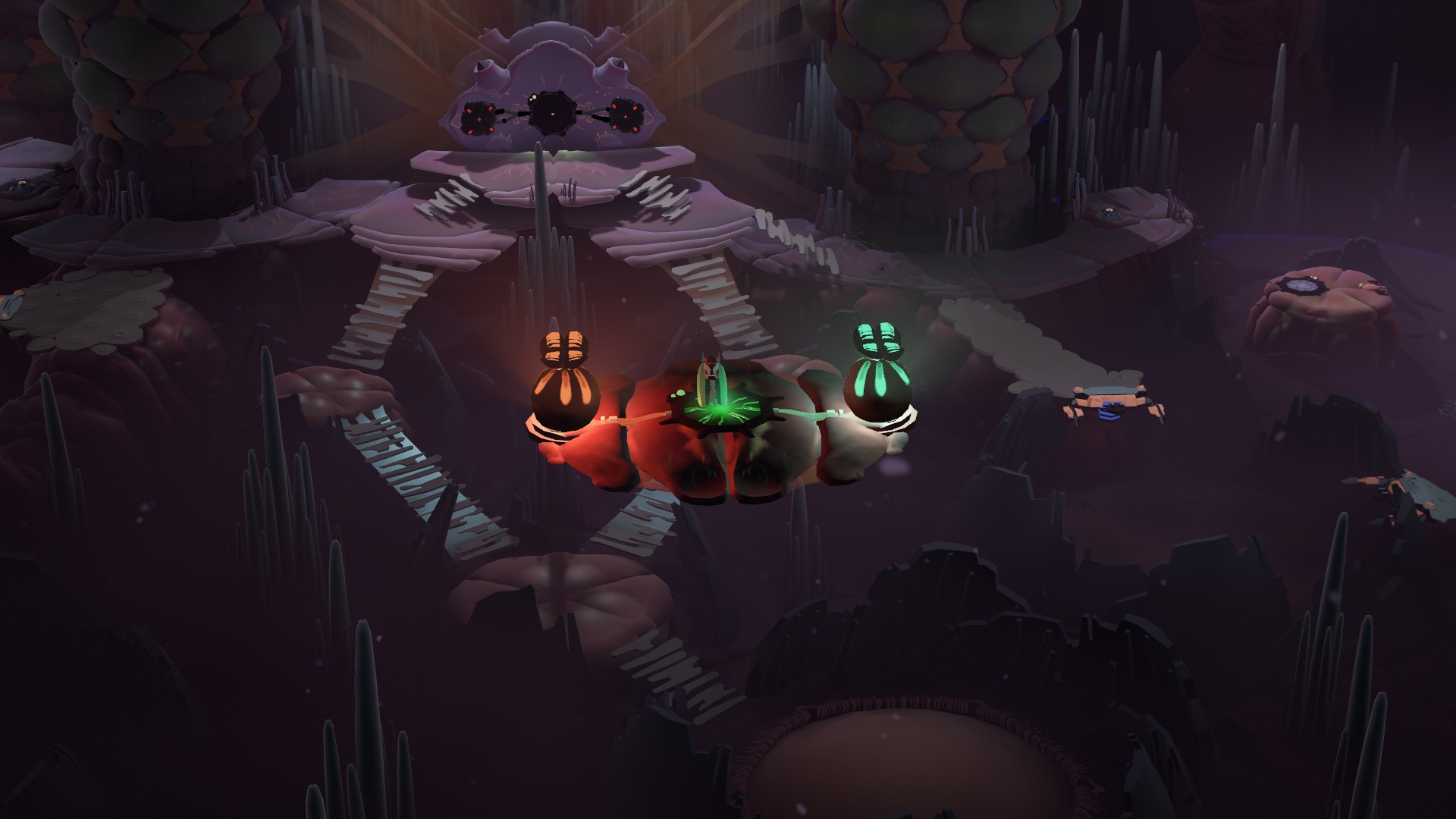
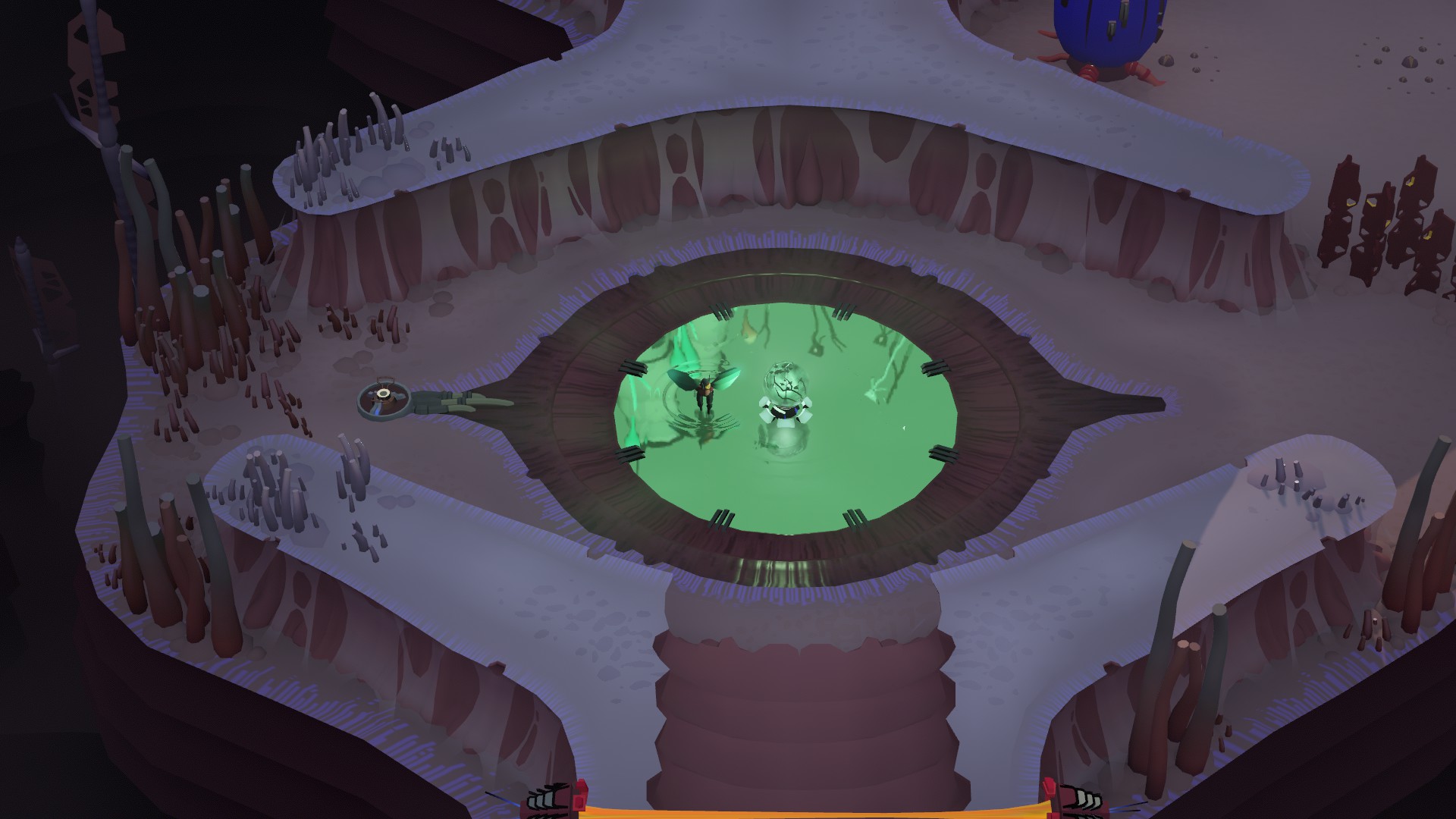
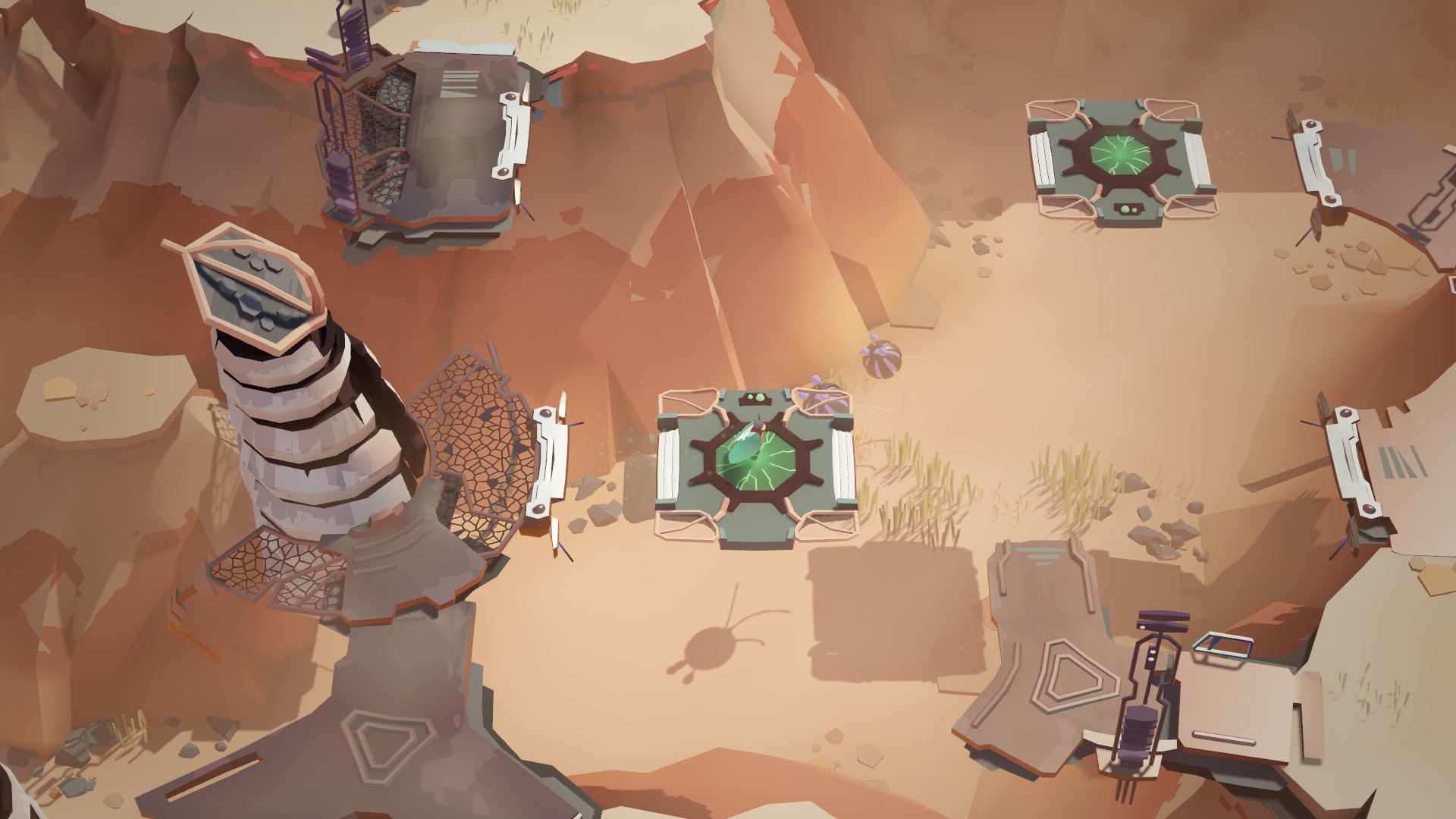
What really makes the globe jumping fascinating is not simply that the puzzles are ingenious and neat and tidy—it's the extraordinary sense of relativity it evokes. Your entire world in one breath becomes a mere object in the next. It's a playful representation of cosmic scale, where the enormity of a planet is a mere marble on the background of the universe, but equally an expression of interlocking ecosystems, which only function in tune with one another. All of these marbles are essential to life, and you are another part of their whole—an insignificant bug but also the world-changing agent.
Cocoon never relaxes its magnificent audiovisual design, which provides a lush environment for puzzles. They make no sense then perfect sense as soon as you toy with them, building on what's come before without a chance you'll predict what's next. Kaleidoscope architecture blends natural vistas into cellular structures, always with a seasoning of the ordinary that you can grasp in an instant. Pillars jut from the ground spaced narrowly enough for you to pass but not an orb, like bars gating airport escalators, ensuring you can enter but a trolley can't. Fields of lollipop plants wobble like rubbery mushrooms as you push through. A transport vessel encloses you with clank-click precision, then you note it resembles a giant jam sandwich biscuit.
Cocoon is a game about the texture of puzzles, and rarely have they felt this good.
A puzzle adventure of rare ingenuity that thrives on its tactility as much as its design.
